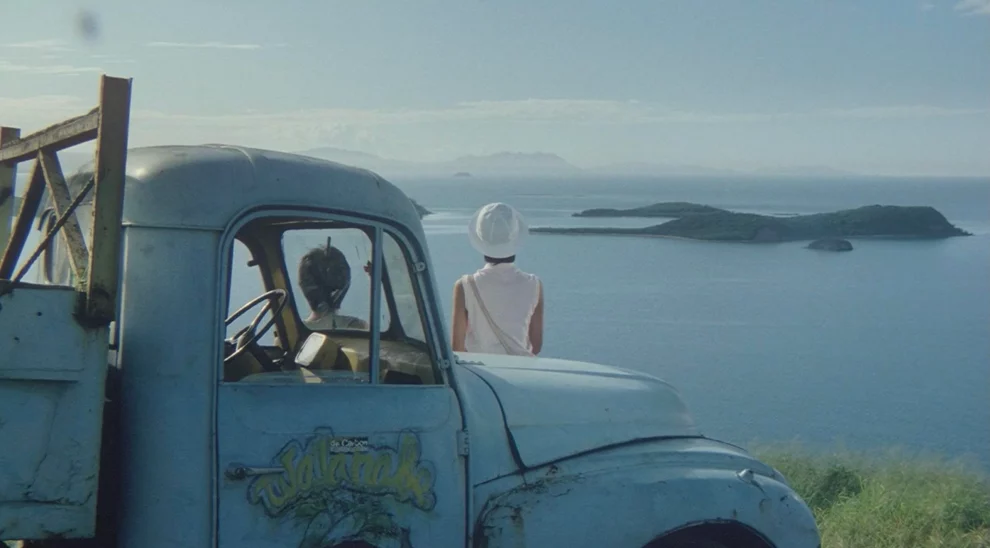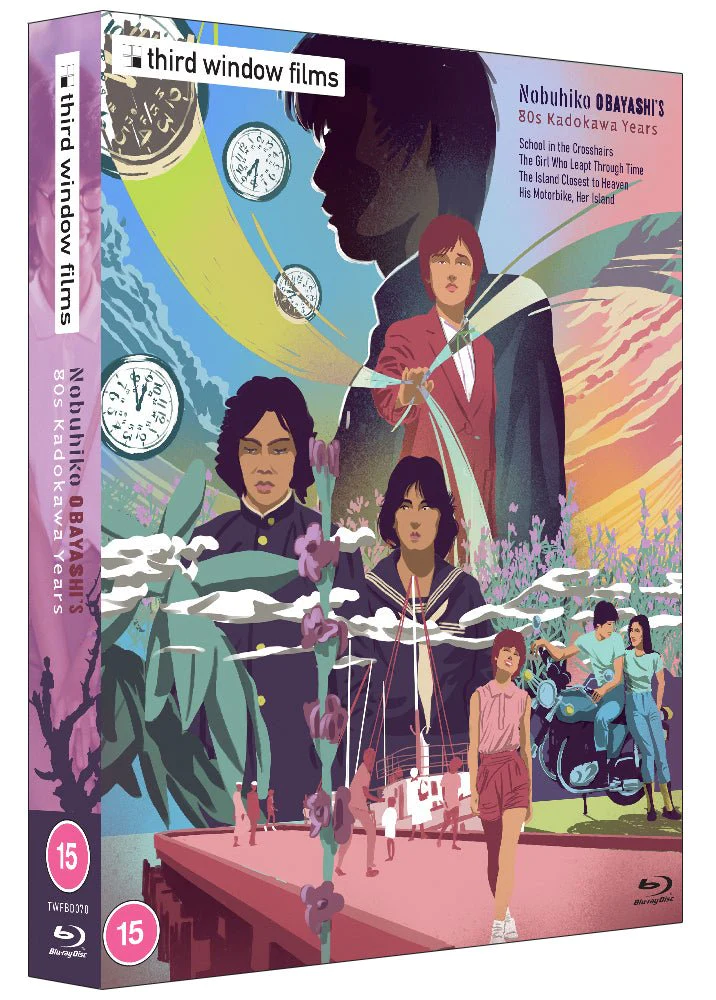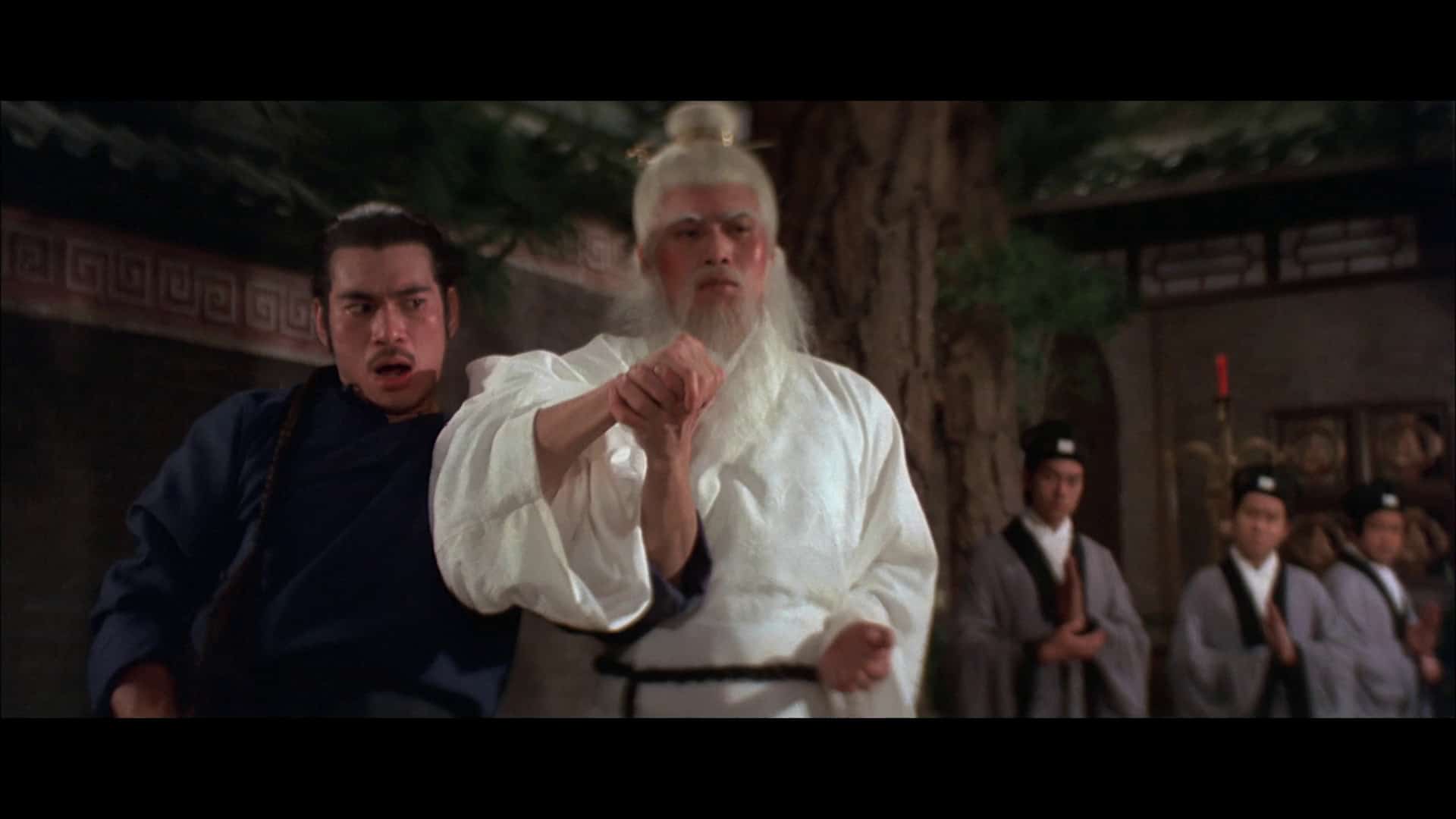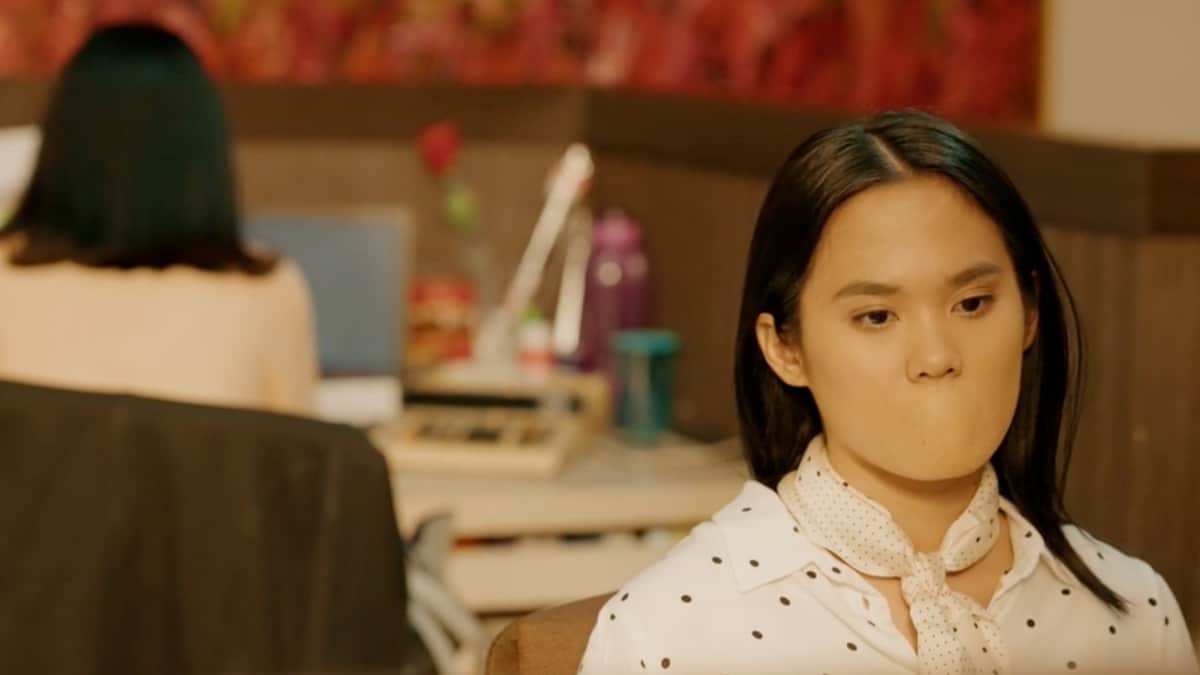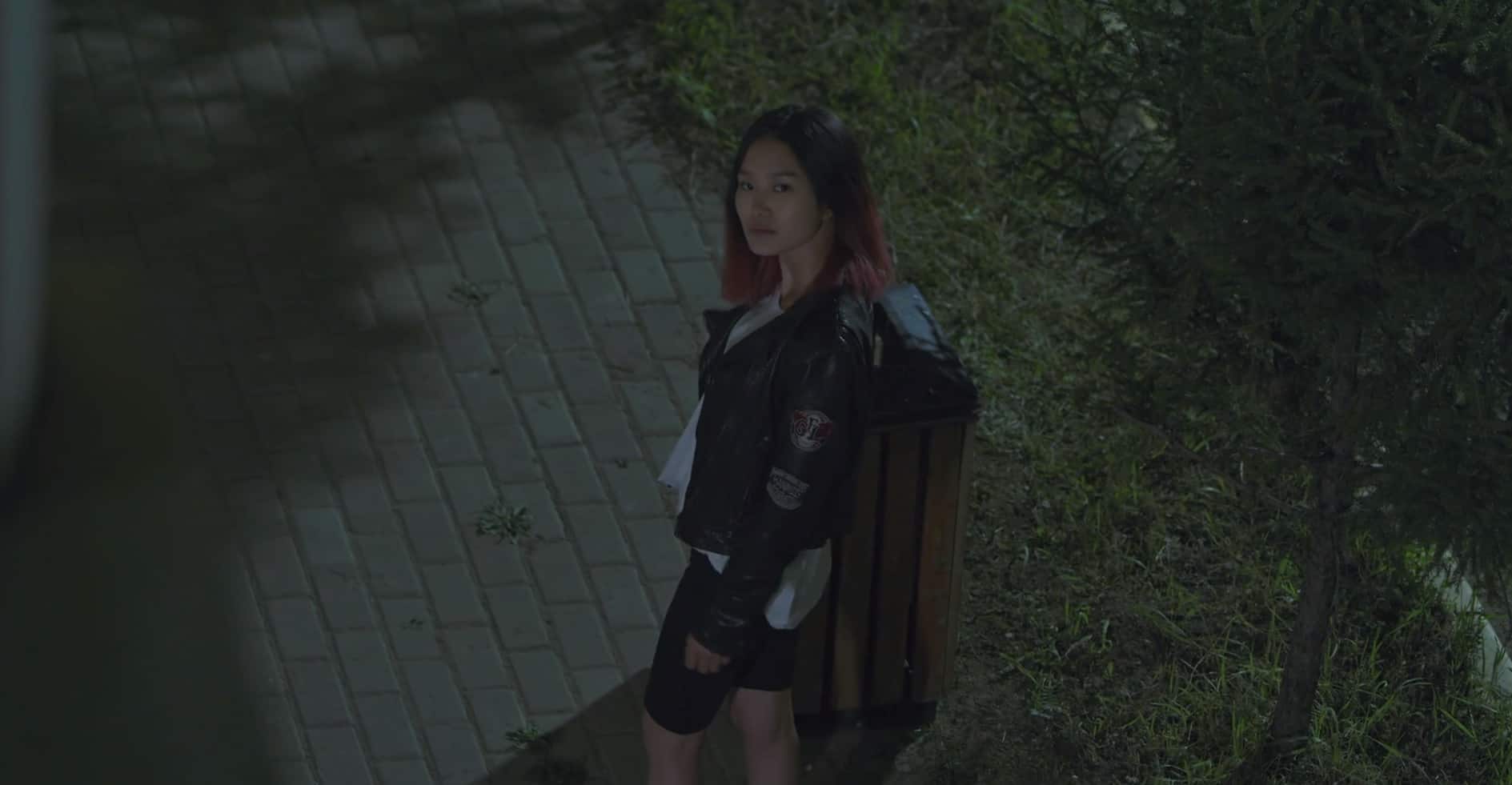Fresh off of the cult hit “The Girl Who Leapt Through Time” (1983), Nobuhiko Obayashi leapt into his fifth project with Kadokawa Productions, “The Island Closest to Heaven”. Based on the novel of the same name by Katsura Morimura, the film is a soul-searching affair that's a far cry from the director's earlier, more frantic pictures. However, despite moving away from his outlandish visuals, Obayashi manages to deliver a tender tale of love, childhood, and coming of age.
Buy This Title
on Terracotta
After the death of her father, Mari Katsuragi (Tomoyo Harada) decides to venture to New Caledonia, an island in the Southwest Pacific where her dad once said she'd find ‘the island closest to heaven'. While looking for this fabled spot to fulfil a childhood promise, Mari explores new, exciting, and occasionally dangerous places, aided by expats, islanders, and other Japanese tourists who have travelled to this tropical paradise.
“The Island Closest to Heaven” presents an extremely straightforward and deceptively simple narrative. As opposed to the breakneck speed of some of Obayashi's past films, the story unravels at a considered pace, inviting us to journey with Mari as she travels by land, air, and sea to find her father's island. New Caledonia is a melting pot of languages and cultures, as indigenous people, French citizens, Japanese tourists and migrants alike all congregate. After determining that New Caledonia isn't the isle her dad was talking about, the high-schooler ventures to the surrounding islands, meeting the locals and taking in the stunning surroundings.
Mari's journey, while literal, is certainly one more centred on self-discovery. As she wanders the islands and makes new friends, Mari learns more about the world around her and sees what adulthood might have in store. Nearly every character she meets has a story to tell, whether it be the widowed Miss Ishikawa, who's come to reconcile with the loss of her husband, or Yuichi Fukaya, who, through Mari, is reminded of a lost love. Perhaps the most significant of Mari's new acquaintances is Shigeru Izumiya's Taro Watanabe, a young farmer whose journey mirrors that of our heroine. A third-generation islander whose mother has passed, Taro dreams of one day visiting his father's homeland of Japan. Mari and Taro find in one another a heart-warming companionship that surpasses childish feelings of romance, helping them to attain personal fulfilment and self-acceptance.
A year after working with her on “The Girl Who Leapt Through Time”, Obayashi reunited with the fresh-faced Tomoyo Harada. The one-time idol brings an innocence and a sense of naivety to Mari as she wanders between islands, searching for the one that ‘feels' right. You get a sense of longing from the teen as she seeks to not only reconnect with her late father but also to cling to her youthful spirit and come to terms with her blossoming womanhood. In Toru Minegishi's Fukaya, Mari finds warmth and kindness in an older man who you initially fear might take advantage. However, there's sincerity and openness in all the film's relationships, with the young woman using each as an opportunity to learn about love, loss, cherishing the past, and letting it go.
While Obayashi's visuals are nowhere near as intense as the zany heights of “House”, the director's stunning use of matte paintings and lighting makes for some beautiful moments, notably Mari and Fukaya's sunset experiment. A filmmaker whose focus on, empathy for, and representation of youth is quite simply astounding, Obayashi's intimate presentation of Mari's journey allows us to feel the teenager's ups and downs as she takes a seemingly uneventful but ultimately life-changing trip. The director's sweeping visuals are almost always accompanied by Asakawa Tomoyuki's sweet and soothing score, which beautifully sets the mood from the overture.
With “The Island Closest to Heaven”, Obayashi takes what could be presented as a run-of-the-mill coming-of-age tale and instead turns it into something quite special. The director delivers a rich and reflective story about finding happiness along with yourself, rife with romanticism and set against the glorious backdrop of the Southwest Pacific. With a stirring lead performance and a touching, character-driven narrative, the film is a beautiful tale about growing up.


